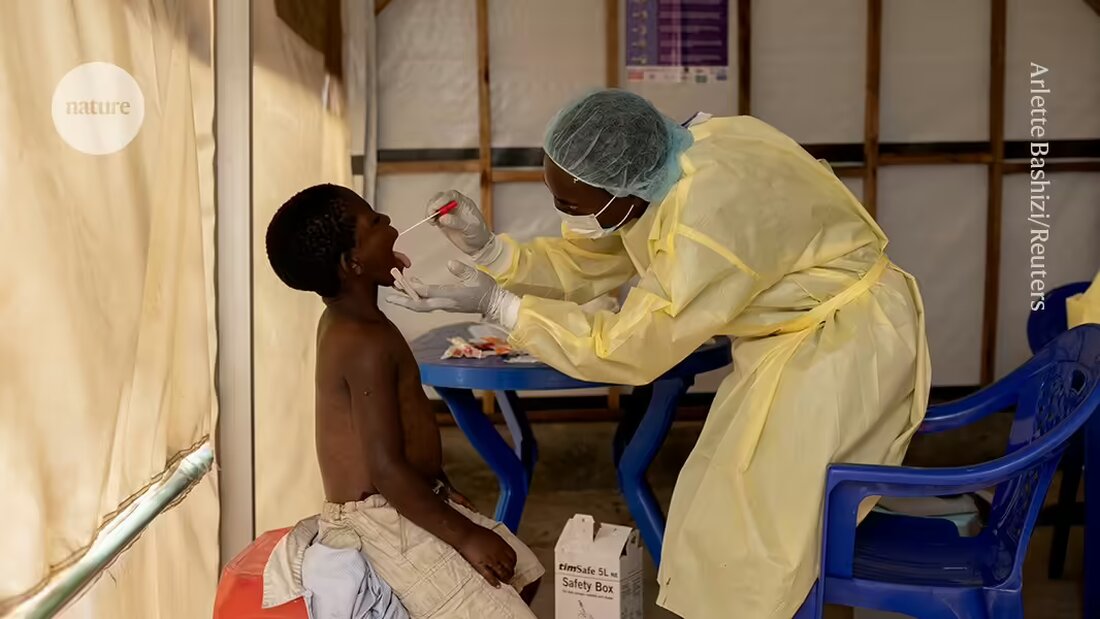A worrying variant of the monkeypox virus has spread rapidly across Central Africa in recent months. The outbreak caused the African Centers for Disease Control and Prevention (Africa CDC) to declare its first public health emergency on August 13th and the World Health Organization (WHO) to meet on August 14th to declare one global declaration to check.
The measures reflect scientists' deep concern that the outbreak of Mpox, the disease caused by the monkeypox virus, could develop into an epidemic that spreads across the continent – and possibly beyond. They note that the virus is present not only in rural regions, but also in densely populated areas.
In recent months, Mpox infections have surged in Central Africa, affecting locations such as Bukavu, a city in the Democratic Republic of Congo (DRC) with a population of more than 1 million, and four countries in the region have reported Mpox infections for the first time. These infections are likely linked to an outbreak that began in late 2023 in South Kivu province, a region of the DRC wracked by violent conflict.
Evidence from previous outbreaks suggests that the type of virus circulating in central Africa is more deadly than the strain that causes it global Mpox outbreak of 2022 that has since infected more than 95,000 people and killed more than 180.
“I hope that we are long past believing that something that happens somewhere else cannot affect us,” says Anne Rimoin, an epidemiologist at the University of California, Los Angeles. who has been working on Mpox outbreaks in the DRC since 2002. “An infection anywhere is potentially an infection everywhere, and we have seen this many times.”
Tender years
African countries have already reported more confirmed and suspected Mpox infections in 2024 than in all of 2023: 17,500 this year, compared to about 15,000 in 2023. Children are particularly vulnerable: around two-thirds of infections in the DRC affect people under the age of 15.
Some of these infections have been traced to a strain called clade II, which caused the 2022 outbreak. But in recent months, an increasing proportion of reported infections have been attributed to a strain called clade I. Clade I has caused small outbreaks in Central Africa for decades, often limited to a few households or communities.
In April, researchers analyzing samples collected in South Kivu in late 2023 and early 2024 revealed that they had identified a variant of Clade I, called Clade Ib, that appears to spread effectively between people, including through sexual contact. Since then, the virus has spread to densely populated areas, presumably through highly mobile populations such as sex workers, and to neighboring countries. South Kivu also faces a humanitarian crisis that makes it more difficult to track and treat infected people, and the DRC is struggling with the aggressive spread of other diseases such as cholera.
Burundi, Kenya, Rwanda and Uganda have all reported their first Mpox infections within the last month, and in a single week in early August, the DRC reported nearly 2,400 suspected infections and 56 deaths. These developments prompted Jean Kaseya, the director general of the Africa CDC in Addis Ababa, to use the authority granted to the African Union in 2023 to declare a public health emergency.
The outbreak has also prompted the WHO to call a meeting to discuss whether the outbreak warrants a global emergency, signaling to countries around the world that coordination and preparation may be needed to bring the virus under control.
Enigmatic virus type
Mpox causes fluid-filled skin lesions that can be painful and, in severe cases, fatal. It is still unclear whether the symptoms of the Clade Ib virus are different from those of the Clade II virus that caused the 2022 outbreak, as well as exactly how dangerous and transmissible it is. “That’s the million-dollar question,” says Rimoin.
Although the mortality rate is higher in clade I Mpox than in clade II Mpox, it is difficult to determine why, says Espoir Bwenge Malembaka, an infectious epidemiologist at the Catholic University of Bukavu. In addition to the virus's intrinsic virulence, many factors could account for Clade I's high mortality rate: For example, Clade I has historically been reported in rural parts of the country with poor access to health care, potentially making it more deadly, he says.
Rapidly increasing surveillance and cooperation between affected countries will be crucial to bringing the outbreak under control, says Bwenge Malembaka. But Mpox treatments and vaccines, which many wealthy countries used during the 2022 global outbreak, remain almost entirely unavailable to African nations.
Vaccines needed
That could soon change: The Africa CDC is negotiating with Bavarian Nordic, a biotechnology company based in Hellerup, Denmark, for 200,000 doses of one The company's two-dose Mpox vaccine Kaseya announced on August 8th. But that's a far cry from the 10 million doses the Africa CDC estimates will be needed to contain the current outbreak, Kaseya added.
If and when these negotiations are completed, there will still be a lot of work to do: It will be difficult to deliver these doses to regions with poor public health infrastructure and to stigmatized populations who are at high risk of getting Mpox, such as sex workers and men who have sex with men, says Rimoin. Furthermore, the effectiveness of the vaccines against Clade Ib is unclear - but given the serious situation in Central Africa, Rimoin says this should not justify a delay in plans to procure doses.
Rimoin adds that she hopes an emergency declaration does not result in the hoarding of vaccines and treatments wealthy countries, as has happened during the COVID-19 pandemic and the Mpox outbreak of 2022. “It is critical to remember that our best defense against outbreaks is to provide the countries most at risk of origin and spread with the tools to control outbreaks at source,” she says.

 Suche
Suche
 Mein Konto
Mein Konto

